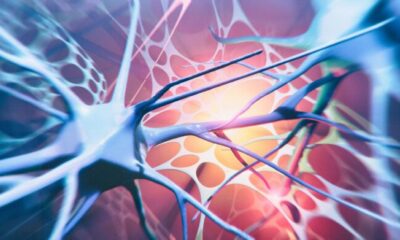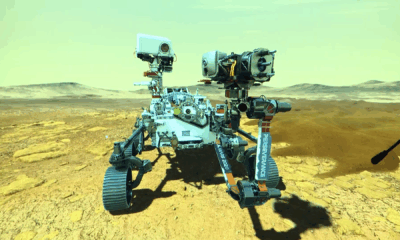Science
Exploring Human Evolution: From Ancestors to Future Adaptations

Research into human evolution reveals a complex journey that spans millions of years, illustrating how our ancestors adapted to their environments. Anya T., a 13-year-old from Brookline, Massachusetts, recently posed an intriguing question: “How did humans evolve, and will they evolve more?” This question touches on the core of evolutionary science and the ongoing adaptations in our species.
Understanding Human Evolution
Every living organism today has undergone evolution, and humans are no exception. The process of evolution involves the transmission of traits from parents to offspring through genes. Variations in these genes, known as alleles, can influence an individual’s survival within their environment. Thus, evolution is not simply about becoming the fastest or the strongest; it is about adaptation to specific environmental challenges.
About 6 million years ago, early human ancestors began to walk upright on two legs. The exact reasons for this shift remain a topic of research, but one prevalent theory suggests that bipedalism allowed our ancestors to navigate increasingly fragmented forests due to climate change. This adaptation was critical for survival as it enhanced mobility and resource access.
Another significant aspect of human evolution is the development of our brains. Humans possess the largest brains relative to body size among all species. While elephants have larger brains overall, their body size is proportionally greater. The evolution of larger brains has enabled humans to innovate, allowing the creation of complex systems such as written language, space exploration technologies, and medical advancements like vaccines that combat diseases such as measles.
Over time, the size of human brains increased until approximately 200,000 to 300,000 years ago, when modern humans, classified as Homo sapiens, emerged. Interestingly, since then, human brains have gradually decreased in size, potentially due to changes in body size or energy efficiency considerations.
Current and Future Evolution
Human evolution is an ongoing process. For instance, individuals in Pune, India have developed a genetic mutation that enhances their ability to process omega-3 and omega-6 fatty acids. This adaptation may be linked to their traditional vegetarian diets, which can sometimes lack these essential nutrients vital for brain health.
The future trajectory of human evolution remains uncertain. All living organisms, including humans, continuously adapt to their environments, which are subject to unpredictable changes. While it may be tempting to envision dramatic transformations similar to those seen in comic book characters from the “X-Men” or the Marvel Cinematic Universe, such superhuman abilities are unlikely to manifest through natural evolution. Instead, the real-life capabilities humans develop will likely stem from our intelligence and innovation, akin to the technological enhancements seen in characters like Iron Man.
While humans may not evolve laser beam eyes or wings, the evolution of our cognitive abilities has allowed us to create tools and technologies that can extend our lifespan and enhance our quality of life. The journey of human evolution continues to unfold, driven by both biological changes and technological advancements.
This exploration of human evolution is based on insights from Evan Simons, a scholar from the University at Buffalo, who emphasizes the importance of understanding our past to navigate future challenges. As we ponder the future of human evolution, it is essential to remain curious and engaged with the science that shapes our understanding.
For those with questions about evolution or related topics, inquiries can be sent to [email protected]. Curiosity knows no age limit, and all questions are welcome.
This article is republished from The Conversation, a nonprofit, independent news organization dedicated to providing factual and trustworthy analysis.
-

 Technology4 months ago
Technology4 months agoDiscover the Top 10 Calorie Counting Apps of 2025
-

 Health2 months ago
Health2 months agoBella Hadid Shares Health Update After Treatment for Lyme Disease
-

 Health3 months ago
Health3 months agoErin Bates Shares Recovery Update Following Sepsis Complications
-

 Technology3 weeks ago
Technology3 weeks agoDiscover 2025’s Top GPUs for Exceptional 4K Gaming Performance
-

 Technology2 months ago
Technology2 months agoElectric Moto Influencer Surronster Arrested in Tijuana
-

 Technology4 months ago
Technology4 months agoDiscover How to Reverse Image Search Using ChatGPT Effortlessly
-

 Technology4 months ago
Technology4 months agoMeta Initiates $60B AI Data Center Expansion, Starting in Ohio
-

 Technology4 months ago
Technology4 months agoRecovering a Suspended TikTok Account: A Step-by-Step Guide
-

 Health4 months ago
Health4 months agoTested: Rab Firewall Mountain Jacket Survives Harsh Conditions
-

 Lifestyle4 months ago
Lifestyle4 months agoBelton Family Reunites After Daughter Survives Hill Country Floods
-

 Technology3 months ago
Technology3 months agoUncovering the Top Five Most Challenging Motorcycles to Ride
-

 Technology4 weeks ago
Technology4 weeks agoDiscover the Best Wireless Earbuds for Every Lifestyle





















